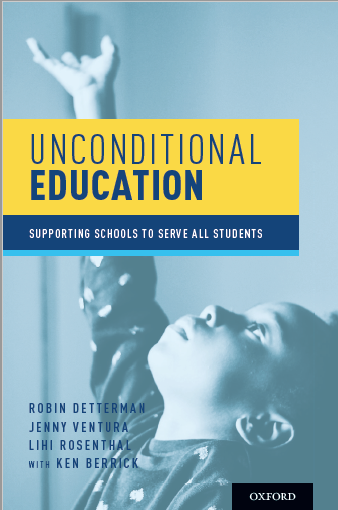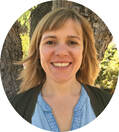What’s this book about?
This is a book about transformational change in schools. Change at this level requires that we consider not only the actions of individual students, families, teachers or schools, but also the systemic conditions that create inequitable outcomes for so many of our nation’s youth. Even after decades of reform, America’s public schools continue to fail predictable groups of students, with the greatest opportunity gaps faced by those whose achievement is hindered by the complex stressors of disability, trauma, poverty, and institutionalized racism. Dramatic change is required to disrupt these existing patterns of inequity. Unconditional Education draws on what Seneca has learned from years of operating specialized education settings, such as counseling enriched classrooms and non-public schools. What we know is that in order for students to be ready to learn they must first experience safety, connection and a sense of belonging. It is not uncommon for students and families who participate in our intensive programs to report that it is the first time they feel welcomed or wanted at school - and that has to change.
Our current educational and mental health systems work on a “fail first” model where students must reach identified thresholds of failure to access certain services. This means that students who enter specialized programs have already experienced years of trouble in school. Rather than waiting for students to get to this point, we must build a system of education that focuses on wellness from the beginning, promoting prevention and early intervention over remediation, and where schools have the knowledge, skills and resources needed to be safe and inclusive places for all students, regardless of their presenting needs. This book highlights specific practices that make up the school transformation framework we have come to call Unconditional Education and discusses implementation successes and challenges within our partner schools.
How does this book connect to Unconditional Care?
In Seneca’s first book, Unconditional Care, John Sprinson articulated how attachment theory and behavioral leaning theory intersect to form the basis of Seneca’s treatment model bearing the same name. At the time of the book’s publication, our agency’s clinical approach was just expanding to also consider how addressing a client’s individual and community context was also needed to promote lasting and sustainable change. Based in systems theory, we now call this the Ecological Stream of our treatment model. Unconditional Education explores how the theoretical concepts behind each of the three streams of unconditional care (relational, behavioral, and ecological) can be applied to individual students and even whole schools.
Why write this book?
For many years, Seneca has sought to break down siloed systems and build a continuum of care across settings and sectors. In the beginning, the agency focused largely on mental and behavioral health interventions, but what we have come to know is that separating a child’s well-being from their success at school is both impossible and absurd. We hope that this book will serve to articulate a set of ideas that will inspire education and policy leaders to rethink the ways in which they support all students. In addition, we hope that the practices described in the book can provide guidance to the many practitioners it requires to enact this important work. The trials and tribulations captured throughout the book are a testament to the many amazing staff who have blazed the trail and continue to define what it takes to provide an unconditional education.


 RSS Feed
RSS Feed